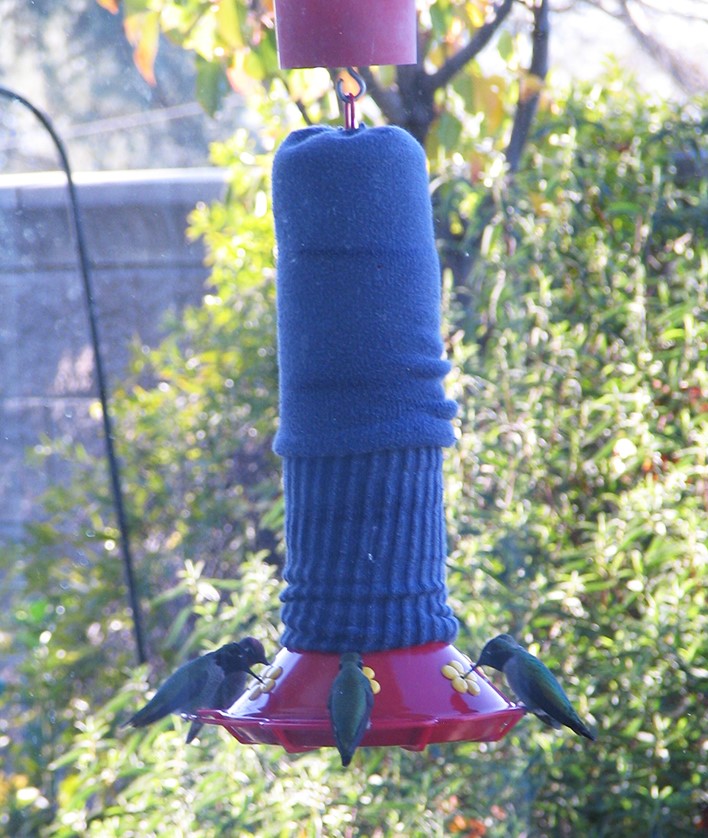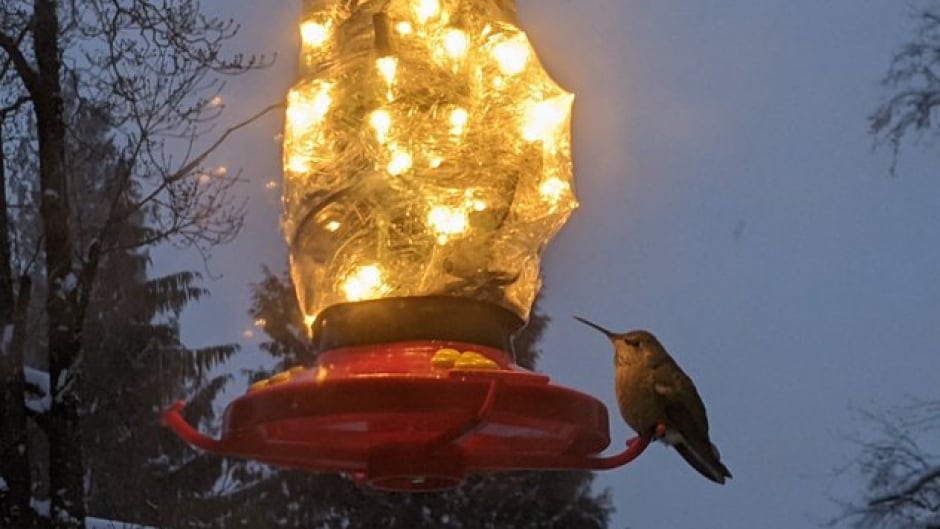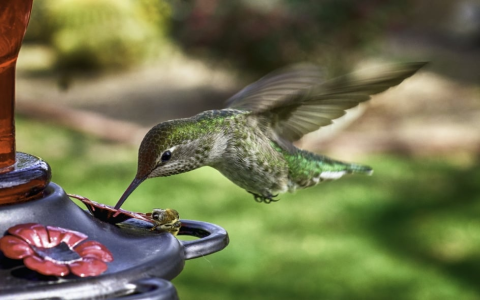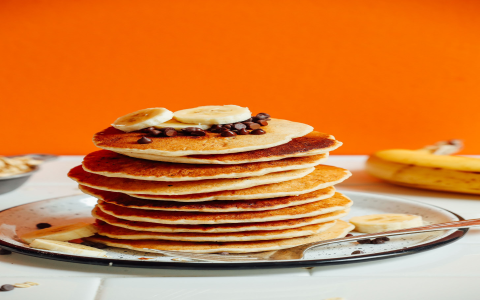How Do You Keep Hummingbird Feeders from Freezing?
As the winter months approach, many hummingbird enthusiasts face a common challenge: keeping their feeders from freezing. Hummingbirds rely heavily on feeders as a primary food source, especially during colder months when natural nectar is scarce. When temperatures drop below freezing, the sugar-water mixture can quickly turn into ice, denying these delicate birds their essential sustenance. Fortunately, there are effective strategies to prevent this and ensure your feathered friends are well-fed even in frigid conditions.

Understanding the Hummingbird Feeder Setup
Before diving into prevention methods, it’s essential to understand how hummingbird feeders work. Typically, these feeders contain a sugar-water solution that mimics the natural nectar found in flowers. The key to keeping them from freezing lies in both the material and the placement of the feeders.
1. Use Heated Feeders
One of the most straightforward solutions to prevent your hummingbird feeders from freezing is investing in heated feeders. These feeders come equipped with built-in heating elements designed to keep the nectar at a safe temperature. These products often have adjustable settings, allowing you to control the level of warmth based on the weather conditions. Although heated feeders might have a higher initial cost, they are often worth the investment for avid hummingbird watchers.
2. Insulation Techniques
If you already have standard feeders, consider insulating them. Wrapping the food reservoir in insulating material, such as foam or towels, can significantly slow down heat loss. Another trick is to use a thermos for the nectar; it provides excellent insulation and helps keep the liquid warm longer. Remember to check the nectar regularly, as the warmer temperatures you maintain will help keep it fluid.
3. Placement Matters
The location of your feeder is crucial in preventing it from freezing. Hanging the feeder in a sheltered area can protect it from harsh winds and cold temperatures. Areas that receive direct sunlight can help maintain warmth, particularly in the morning. Placing your feeder near buildings or other warm structures can also provide additional heat from those surfaces.

4. Regularly Change the Nectar
During colder weather, you should check your feeders daily. Frozen nectar can happen quickly, so changing the sugar-water solution frequently can help ensure that the birds have access to liquid nectar. It’s recommended to use a 1:4 ratio of sugar to water; a stronger mixture may freeze more quickly and be less appealing to the birds.
5. Reduce the Amount of Nectar
If temperatures are consistently below freezing, consider reducing the amount of nectar in your feeder. This way, there’s less chance of it freezing overnight. Smaller feeders will also encourage quicker consumption by hummingbirds, reducing the likelihood of nectar freezing before they arrive to feed.
6. Monitor Weather Conditions
Keeping an eye on the weather forecast is essential for any hummingbird feeder caregiver. On especially cold nights, you might want to bring your feeder inside to prevent freezing. Alternatively, hanging a small light bulb near the feeder can help provide warmth without posing a fire hazard, effectively keeping the nectar fluid throughout colder nights.
7. Alternative Food Sources
While focusing on keeping feeders functional, consider providing hummingbirds with additional food sources. Planting native flowers or placing shrubs that thrive in your area can attract these birds naturally. Ensuring a more extensive habitat can help sustain them even if they can’t access the feeders.

With these strategies, you can successfully keep your hummingbird feeders from freezing, ensuring your backyard remains a welcoming oasis for these beautiful creatures during the colder months. Each method has its advantages, and often, a combination of several techniques will yield the best results. Observing hummingbirds can bring joy and a sense of connection to nature, so take the necessary steps to care for them even in challenging weather. Ensuring they have access to food during winter is a rewarding effort that helps support their survival and wellbeing.



